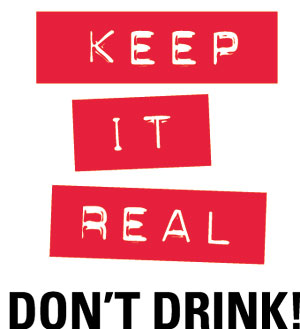Does Prevention Work? Keep It Real Effort Shows How
 Does prevention really work when it comes to underage drinking? The answer is a resounding yes when it comes to the Keep It Real campaign.
Does prevention really work when it comes to underage drinking? The answer is a resounding yes when it comes to the Keep It Real campaign.
“I would happily give the program an ‘A,’” said Donna Wiesenhahn, a Certified Prevention Professional and Keep It Real committee member.
“Other people have copied the program, and we get calls nationally about what we do.”
The focus of what they do is the annual Keep It Real video contest, a unique competition in which high school students submit 30-second videos with an anti-underage drinking message.
For the past eight years, the contest has culminated in an Oscar-style awards event honoring the winners in a variety of categories.
At this year’s event in February, the committee handed out $3,100 in prize money and raffled off giveaways including an iPad.
Plus, the winning video was aired on local TV stations and in pre-show ads in local cinemas.
The contest helps foster teenage creativity, engages both genders and has helped identify up-and-coming local filmmakers.
Garrard County’s Parker Young won three consecutive best-in-show awards and now works for Disney.
Perhaps even more persuasive is what students themselves say about the Keep It Real campaign. In the 2012 survey of students, teachers and parents, telling statistics included:
- 93% of students believe participating in KIR was worth their time.
- 92% of students are more aware of the risks of underage drinking as a result of KIR
- 79% of students reported being less likely to drink as a result of KIR
- 100% of parents reported that because of KIR they were having more conversations with their teens about underage drinking.
For Wiesenhahn, it’s all about high expectations.
“It really kills me that the best we can expect from our kids at graduation and at prom is that they get drunk,” she said. “We can have higher expectations for our kids.”
That message is necessary because of the onslaught of pro-drinking messages teens receive from TV, video games, movies, magazines – all equating good times with drinking.
There is much parents can do to augment the Keep It Real campaign, Wiesenhahn said, referring to the campaign’s web site under Does Prevention Work (www.keep-it-real.us/does-prevention-work/)
Wiesenhahn encourages parents to balance out the pro-drinking message by speaking out.
And she warns, “If the pro-drinking message is the only one you want your teens to hear, then don’t speak up.”

